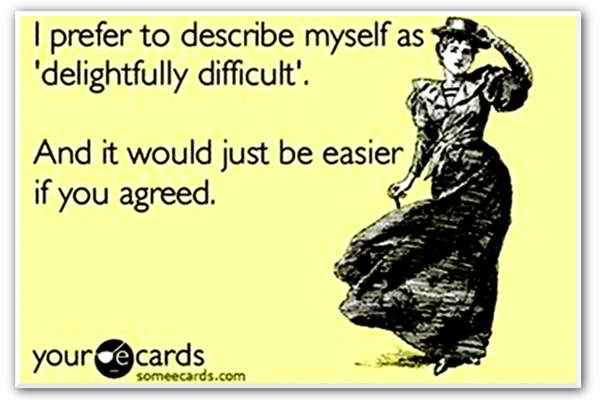Thanks for the conflict
A dear friend of mine works in informal conflict management in the workplace. We met several years ago, when I participated in a workshop that he was leading on Communication Styles. We spent most of that session trading barbs and joking. When, about a year later, we ended up in another workshop together, we became firm friends. Over the years I’ve had to call on him to assist with dealing with different workplace situations. (And we’ve had drinks together a few times, so it’s not all hard work!) One day, I was in his office griping about a problem, when I said “I wish I had a taser and the right to use it.”

We’ve laughed over my reprehensible thought many times. But there are situations where things seem to get totally stuck and each of us is firmly convinced of the rightness of our position… and in that case violence sometimes emerges as the way out. Whether it’s physical – hitting, shooting or worse – or verbal, where we may resort to insults, name calling or even shouting.
All of us struggle with people who push our buttons – whether it’s the colleague who must repeat endlessly the story of that time in that other job…; the guy who waits until the morning of implementation to drag out a 15-year-old memo to explain why we can’t do that project or the person who gripes “that’s not my job” before complaining that nobody is willing to help.
Working with my friend, I’ve learnt how to remain calm in most situations. (Frankly, what happens sometimes is that I get through a painful session, then have a good vent.) I’ve also learnt that even the best of us can sometimes be the difficult person in the room.
So, when stress builds up, take a breath. Ask yourself:
It takes practise to be that patient. And you need at least one very honest friend to point out when you are the difficult one. But in the end it’s all worth the effort, because then you become a stronger person for having dealt with these challenges.
I still don’t have the taser. And I handed over my grenade to my friend as proof that I did learn from him and that I am trying to be kinder and gentler. (Yes, I had a small rubber grenade that a former employee had given me. It was a great conversation piece.) In keeping with my core personality, though, I kept my dispute-settling hat – a gorgeous white Stetson that, when I wear it, signals that I have the final word on all disagreements, and it will be done my way. (Hey, I’m human after all!)
(Hey, I’m human after all!)

We’ve laughed over my reprehensible thought many times. But there are situations where things seem to get totally stuck and each of us is firmly convinced of the rightness of our position… and in that case violence sometimes emerges as the way out. Whether it’s physical – hitting, shooting or worse – or verbal, where we may resort to insults, name calling or even shouting.
All of us struggle with people who push our buttons – whether it’s the colleague who must repeat endlessly the story of that time in that other job…; the guy who waits until the morning of implementation to drag out a 15-year-old memo to explain why we can’t do that project or the person who gripes “that’s not my job” before complaining that nobody is willing to help.
Working with my friend, I’ve learnt how to remain calm in most situations. (Frankly, what happens sometimes is that I get through a painful session, then have a good vent.) I’ve also learnt that even the best of us can sometimes be the difficult person in the room.
So, when stress builds up, take a breath. Ask yourself:
- Is it me or is it them?
- What am I doing that is causing this reaction?
- What can I do differently to defuse the situation?
- How can I make this better?
It takes practise to be that patient. And you need at least one very honest friend to point out when you are the difficult one. But in the end it’s all worth the effort, because then you become a stronger person for having dealt with these challenges.
I still don’t have the taser. And I handed over my grenade to my friend as proof that I did learn from him and that I am trying to be kinder and gentler. (Yes, I had a small rubber grenade that a former employee had given me. It was a great conversation piece.) In keeping with my core personality, though, I kept my dispute-settling hat – a gorgeous white Stetson that, when I wear it, signals that I have the final word on all disagreements, and it will be done my way.



Comments
Post a Comment